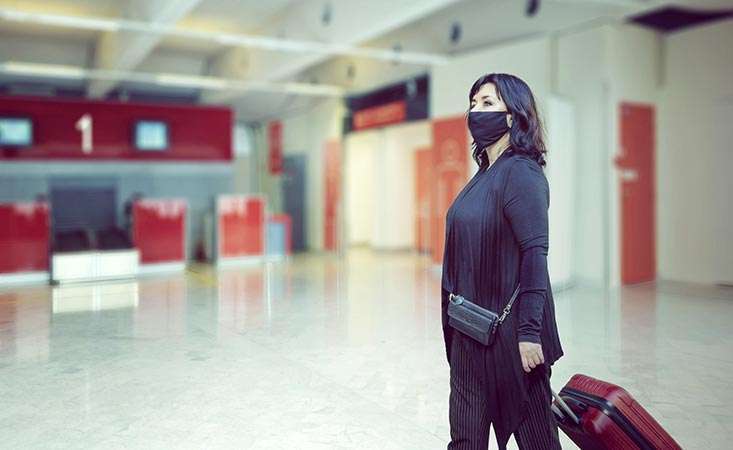
Travel may seem burdensome for those with pancreatic cancer at any time. This summer, the coronavirus disease (COVID-19) pandemic is making travel even more challenging.
Travel increases a person’s risk of getting and spreading the coronavirus. But summer and travel go hand-in-hand, and some patients need to travel for appointments, treatments and other necessities.
Here are some things people with pancreatic cancer should keep in mind when traveling or considering travel right now:
- Talk to your healthcare team before traveling: It’s critical for patients to communicate with their healthcare team to understand risks and necessary precautions. If you need to travel for an appointment or treatment, ask the institution you are going to if they require any quarantine period or other precautions before entering the facility. The Pancreatic Cancer Action Network’s (PanCAN) Patient Services can give you a list of questions to ask your healthcare team.
- Determine the lowest-risk form of travel for you: Airlines are required to take precautions right now, and many states have strict safety regulations for businesses to operate at this time – but those guidelines vary. The best form of travel will likely depend on where you’re going, the regulations in place in the areas you’ll be in and potential risks along your journey (crowded planes, rest stop bathrooms, overnight lodgings, etc.). Check with your doctor before flying to be certain it will not be a health risk for your condition, as changes in oxygen levels and air pressure at high altitudes can cause blood clots or a collection of fluid known as lymphedema in pancreatic cancer patients. If you will stay in a hotel at any point, ask ahead of time what their health and safety procedures are to ensure you feel comfortable with the environment you’ll be in. Follow travel advisories and CDC recommendations.
- Plan ahead: It’s critical to plan ahead. Map out what’s needed and what you or a family member should do in case of a medical emergency. Book hotel rooms and plan stops ahead of time, as many options may be closed or may not be taking the precautions you need. Pack food and other necessities to limit the need for stops and store runs. Bring plenty of face coverings to wear as well as supplies like hand sanitizer and disinfecting wipes that may be in short supply at your destination.
- Follow safety guidelines during your journey and throughout your stay: Wear a face covering in public, stay at least 6 feet away from others and wash your hands or use hand sanitizer frequently. Disinfect surfaces and high-touch objects in your lodging upon arrival and throughout your stay. Avoid shared spaces and public facilities as much as possible. PanCAN’s Patient Services can help you understand the recommended precautions as well as provide state hotline numbers for information on testing, isolation and quarantine guidance by area.
- Know your medical information: Have your doctor write a full summary of your medical instructions, allergies, diagnosis and treatment plan. Some hospitals may not be able to access your health information, so it’s important that you have it on hand.
- Keep your medication and medical instructions close: Have enough of your medications to last your entire stay, and pack your medicines (and related instructions) so they’re always within reach. Keep them close by storing them in a handbag or carry-on luggage. It’s too risky to pack your medicine in checked luggage, which can end up delayed, misplaced or damaged.
- Maintain healthy habits: Be sure to eat balanced meals, and don’t let your diet and schedule suffer because you’re traveling. Attempt to keep to your normal routine, get plenty of rest and don’t abandon healthy habits.














